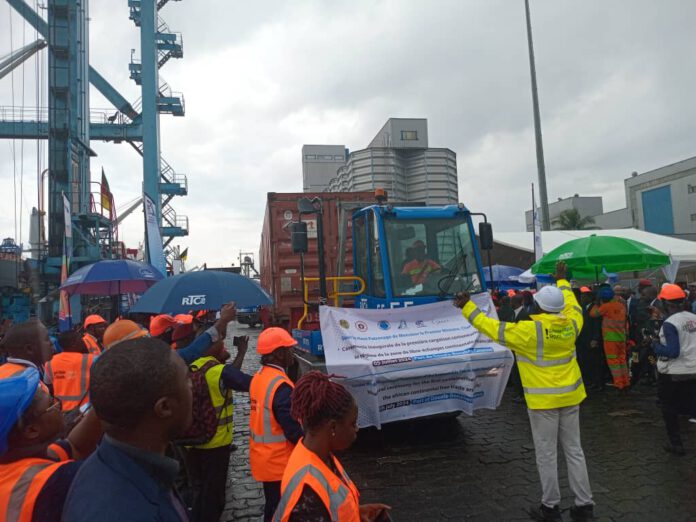An inaugural ceremony which took place on the 5th July cameroon performs its first exportation of goods via sea route.The ceremony was presided by the minister of trade Luc Magloire Mbarga Atangana at the port of Douala.
After receiving resin from Tunisia under the Zlécaf regime at the deep sea port of Kribi, the country carried out the opposite operation on July 5, 2024, by exporting from the Régie du Terminal à Conteneurs (RTC) from the Port of Douala, a containerized cargo of 99,490 aluminum ingots heading to the port of Bejaia in Algeria.The cargo of 04 and a 20-foot container is intended to be used as a component in the manufacture of electrical cables. The handling operation, which falls within the framework of the test phase of the implementation of Zlecaf, is the result of negotiations between the National Council of Shippers of Cameroon (CNCC) which houses the ad-hoc subcommittee responsible for monitoring and activation of guided trade of the unified African market in Cameroon, and ALFILECT.
<<Cameroon is amongst the first in africa to have met this objective which is considered as beneficial for the state and it is A way paved by the government to enable youths to better their future with the new system where cameroon is exporting rather than importing>> as explains the minister of trade Luc Magloire mbarga Atangana at the inaugural ceremony
On October 31, 2019, the President of the Republic signed the decree ratifying the ZLEFAC , making Cameroon the 33rd State Party to this Agreement. Cameroon designated as a pilot country, alongside other nations such as Ghana, Kenya, Egypt, Tunisia, Tanzania, Rwanda, Morocco and Mauritius, the Ministry of trade then instructed the National shippers Council of Cameroon (CNCC) on September 8, 2022, to host the ad-hoc subcommittee responsible for the implementation of the Zlecaf in Cameroon.
The mission of this subcommittee is to bring Cameroonian shippers to benefit from this preferential regime which will ultimately allow them to trade across the continent, without paying customs duties on 90% of trade.





